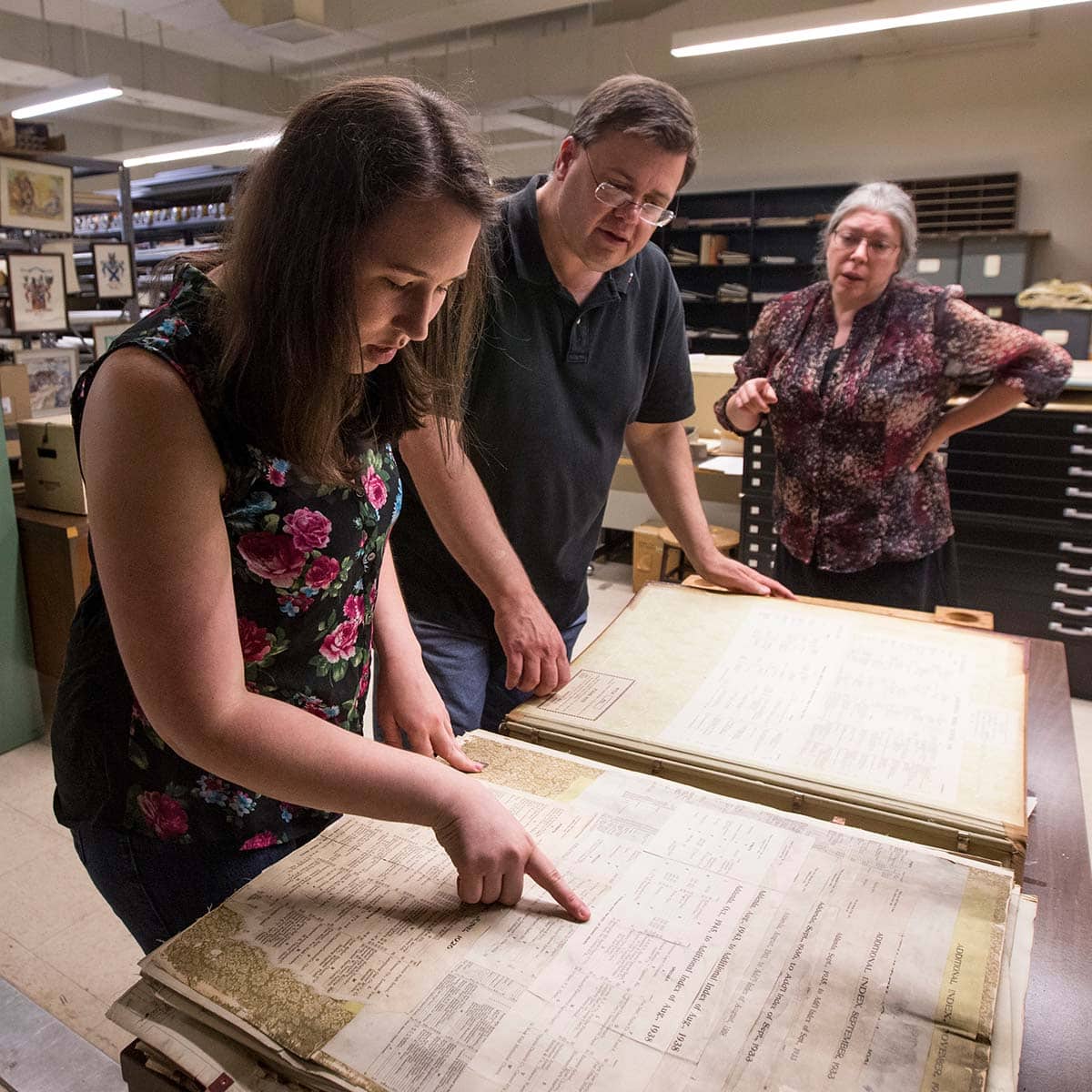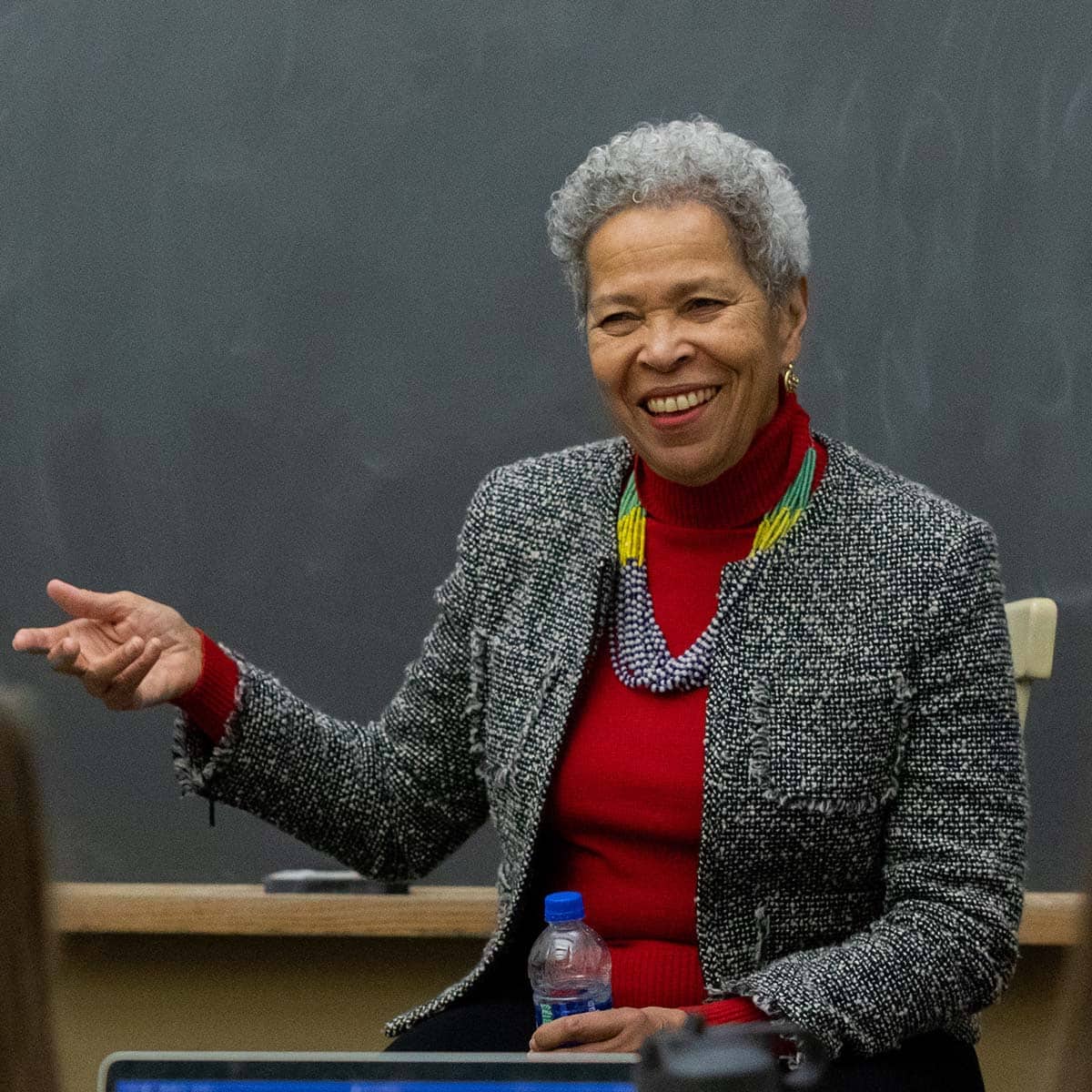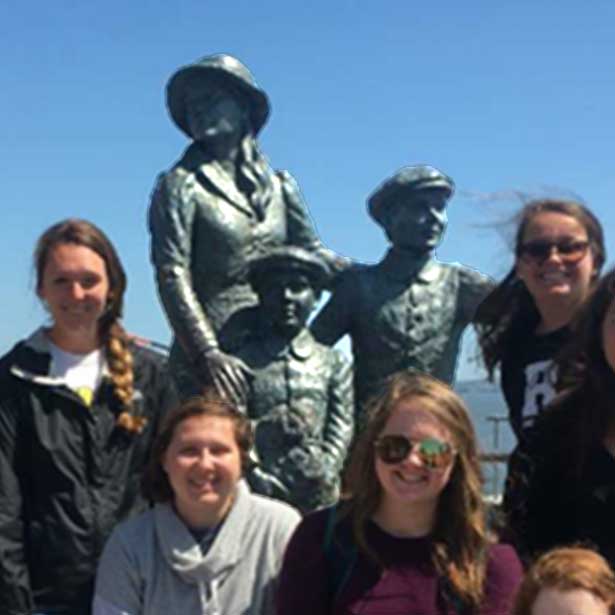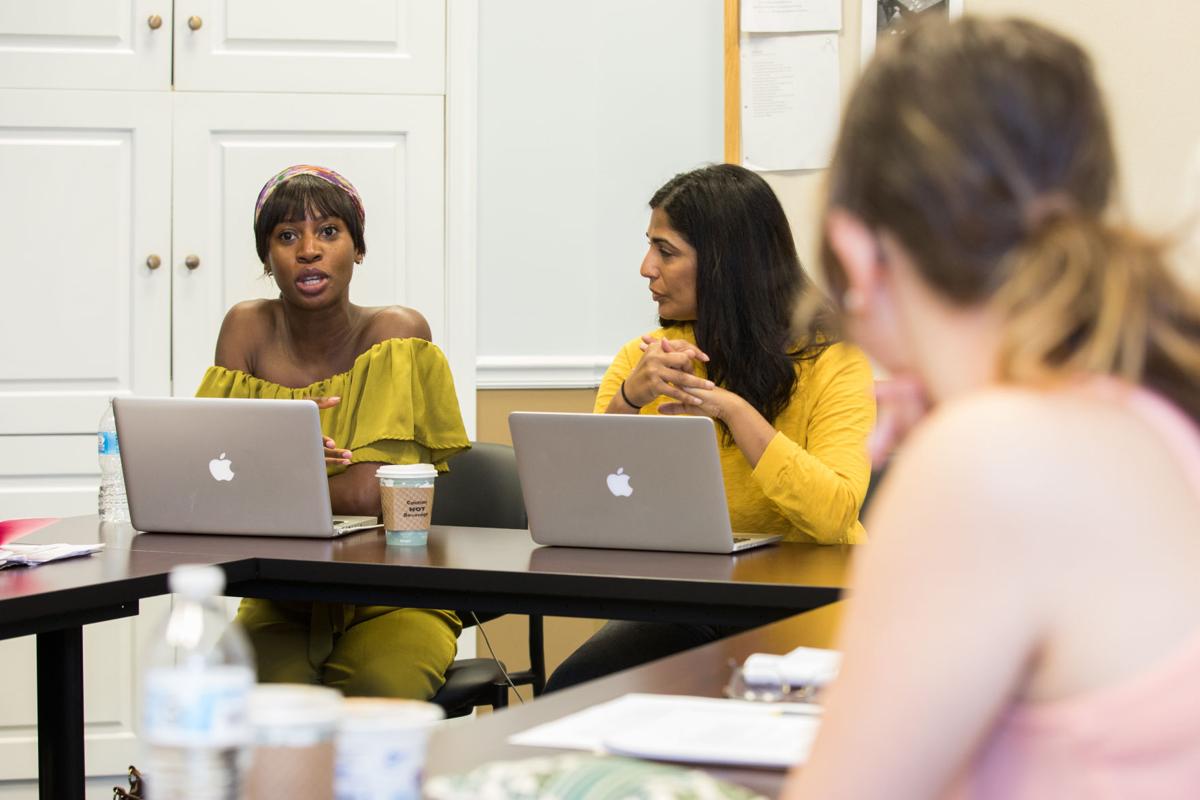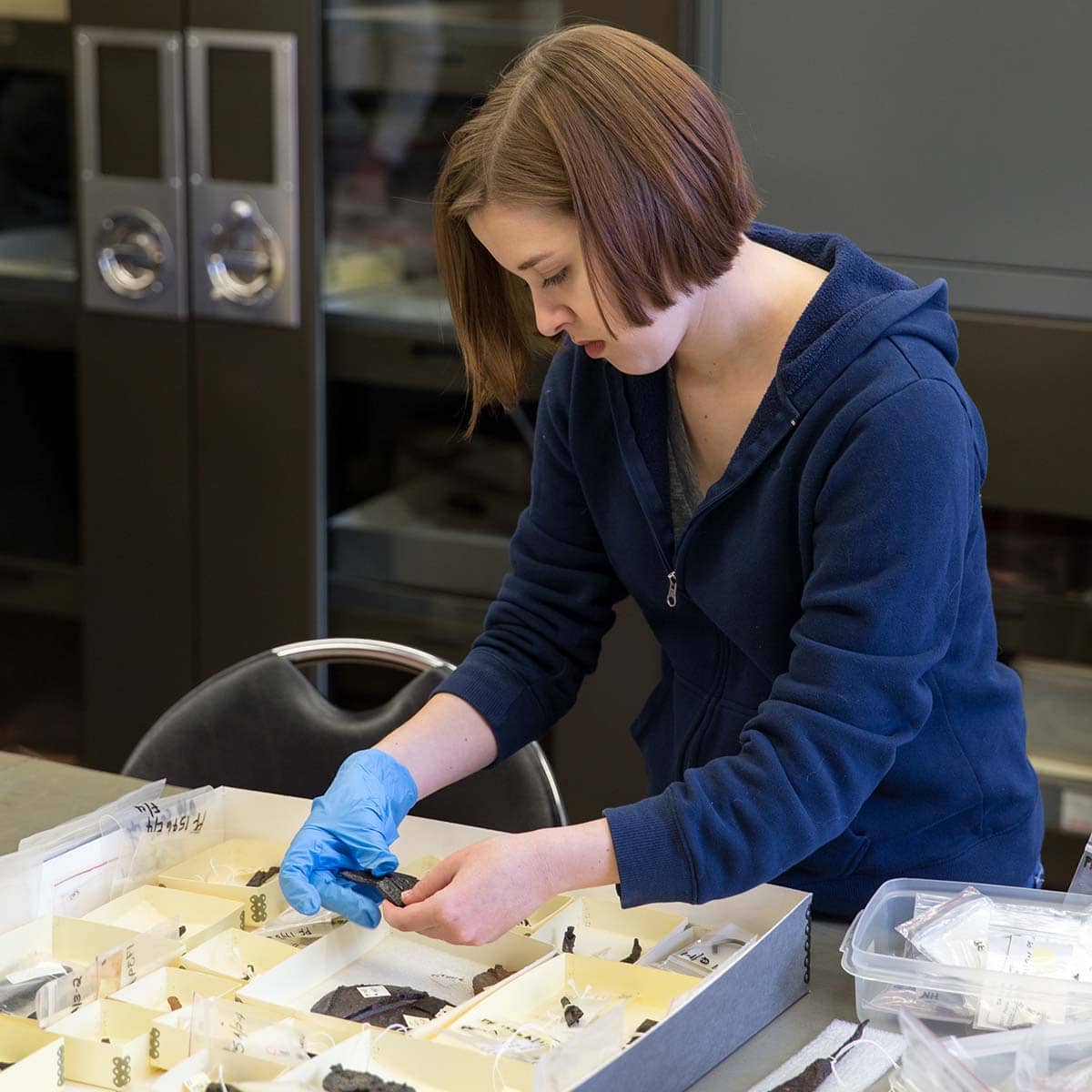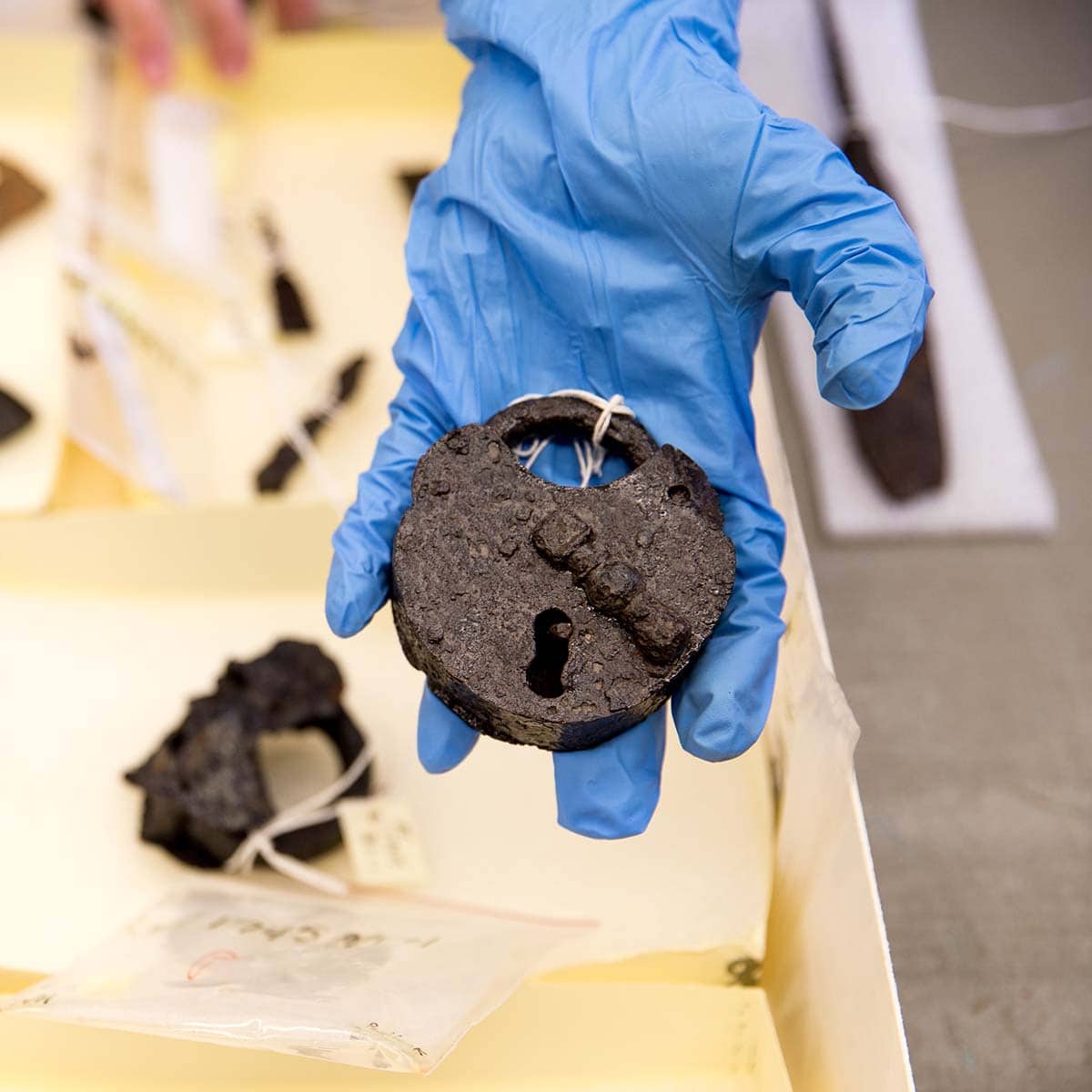English
Randolph College » Academic Programs » English
The English major at Randolph College allows students to read and write with vigor, to practice critical and creative thinking, and to promote an understanding of how people have represented their humanity with the written word.
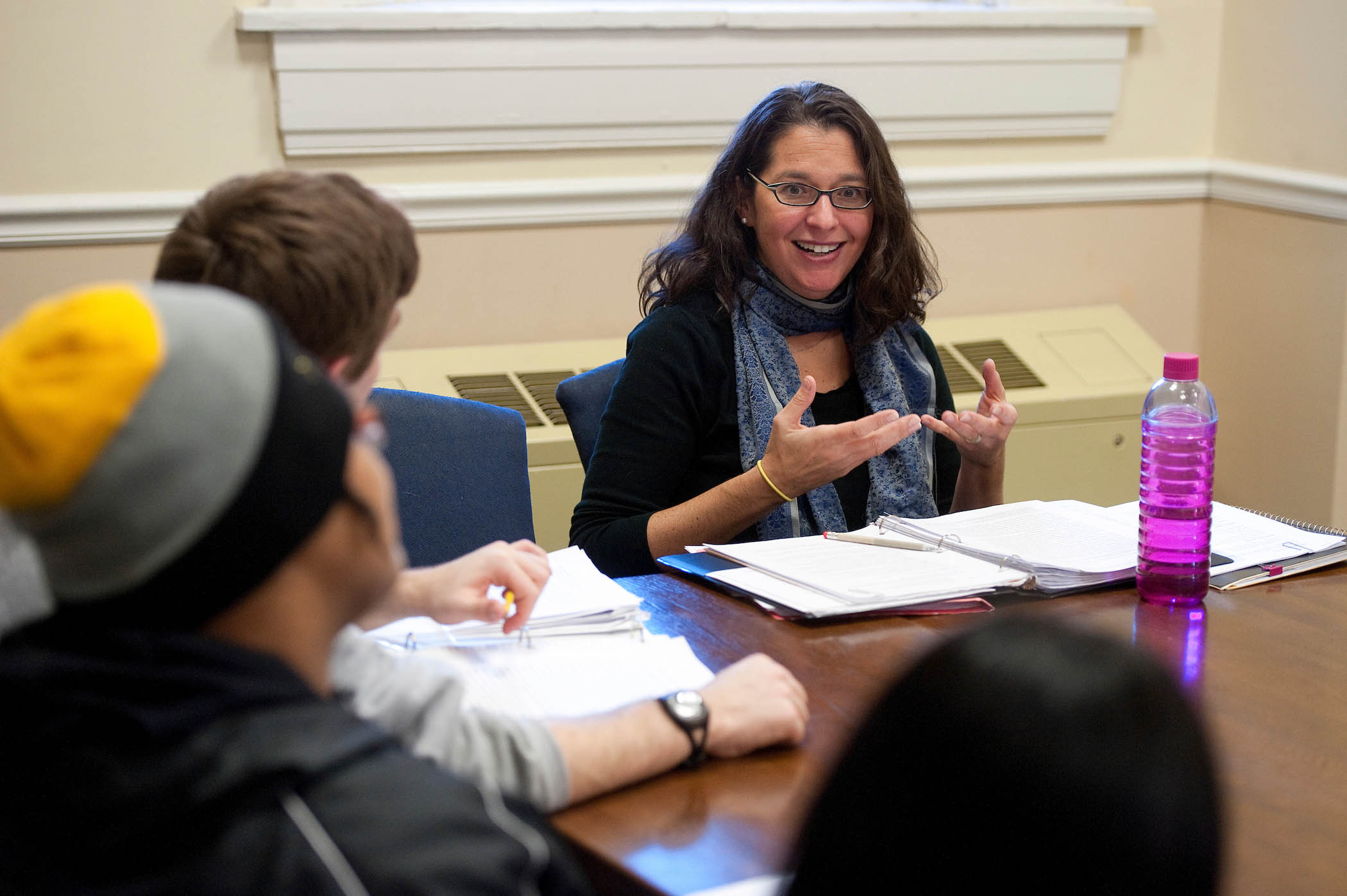
Why Study English at Randolph?
The diverse course offerings in the English program at Randolph College engage students in the study of character, human desire, and relationship, in topics ranging from Shakespeare, to literature inspired by the sea, to writing fiction.
It is a wealth of variety!
In such courses, students will grapple with the most prescient of concerns across cultures, across history, and across the varied worldviews of writers whose words have shaped centuries of thinking.
We are a department of enthusiastic readers and writers.
We are a home for future authors, editors, journalists, teachers, and bookworms.
We believe English majors leave Randolph College prepared to enter the workforce as clear communicators and adept critical thinkers—skills that transcend any given trend in the job market.
Degrees offered
English – Literature BA
English – Creative Writing BA
English – Creative Writing BFA
English – Creative Writing MFA
English minor
Editing minor
Related Programs
Program Overview
Presence
An intimate classroom experience is not just a nice experience for young readers and writers, it is necessary to quality discussion and writing mentorship.
At Randolph College, students are always actively engaged in conversation with faculty.
Prestige
The Randolph MFA in Creative Writing program was hailed by Poets & Writers as “A new kind of MFA program that makes diversity its mission.”
MFA faculty are recipients of Pen American Awards, National Book Award Finalists, and publish regularly in The New Yorker, The Los Angeles Times, Poetry Magazine, and elsewhere.
MFA students have won Guggenheim awards, published books with the “big five” presses, and regularly earn publication in the most prestigious literary journals and magazines.
Practicality
Undergraduate students may work on one of three student publications:
- Hail Muse, Etc.! (campus literary magazine),
- The Sundial (student newspaper), or
- The Jack (journal of academic writing).
Other Opportunities:
- Off-campus internships
- Sigma Tau Delta honor society
- Creative writing club
- Revolute (MFA literary magazine)
Senior Seminar
Required of all English majors, the Senior Seminar allows students to develop critical perspectives in literature by increasing understanding of key concepts such as genre, period, school, and critical approach.
Student Publications
- Hail Muse, Etc.! (campus literary magazine)
- Sundial (student newspaper)
- The Jack (journal of academic writing)
Internships
Randolph students gain real world experience through required off-campus internships in a variety of fields, disciplines, and industries.
English majors have interned at
- Randolph College’s Maier Museum of Art (curatorial intern),
- Prototype Advertising (literary intern),
- Lynchburg’s Academy of Fine Arts (marketing intern),
- Dublin, Ireland’s Trinity College (international programs intern) and
- the Obama Campaign for Change (political intern).
Small Classes
Randolph professors offer unique, engaging courses on topics like food and social justice, labor, banking, and international economics, which often take students outside the classroom.
Intercultural Competence
All Randolph students learn global citizenship with the capability to accurately understand and adapt to cultural differences and find commonality.
Outcomes
Randolph students are prepared for success and find careers in industry, government, and service, as well as acceptance into top graduate schools.
Visiting Writers
In addition to classroom instruction, Randolph students learn about the craft of writing from working writers.
The Visiting Writers program brings professional writers to campus throughout the academic year. Coming from a variety of backgrounds and genres (fiction, non-fiction, poetry, journalism, play writing, etc.), Visiting Writers conduct workshops, visit classes, give public and private readings, and conduct book signing sessions.
Students have direct contact with writers in an open environment where no question is off limits.
Visiting writers over the years have included Margaret Atwood, Charles Baxter, Ann Beattie, Molly McCully Brown, Stephanie Burt, Eduardo C. Corral, Natalie Diaz, Camille Dungy, Claudia Emerson, Kaitlyn Greenidge, Allison Hedge Coke, Mira Jacob, Maxine Kumin, Maxine Hong Kingston, Shara Lessley, “Mc” McIlvoy, Wayetu Moore, Pattiann Rogers, Ira Sadoff, Mark Haskell Smith, Patricia Smith, Sue William Silverman, Peter Taylor, Ellen Bryant Voigt, Eudora Welty, Richard Wilbur, Christian Wiman, and many others.
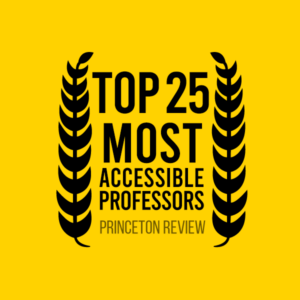
Top Ranked Professors
Randolph College’s faculty are consistently recognized as among the best in the nation. The Princeton Review ranked the College in the Top 25 for most accessible professors in the most recent edition of its flagship college guide, The Best 389 Colleges.
Randolph has been ranked in the top 25 for most accessible professors for more than a decade.
English Faculty
Mara Amster
Charles A. Dana Professor of English, Associate Provost of the College
Read More... Mara AmsterGary Dop
Professor of English, Director of the Master of Fine Arts in Creative Writing program, Dean of Innovation
Read More... Gary DopOnly at Randolph
Randolph students can take advantage of unique programs which give them a more enriching education than can be found anywhere else.
The Randolph Innovative Student Experience (RISE) program provides every student a $2,000 grant to fund research, creative work, experiential learning or other scholarly pursuits.
Two courses per half-mester means you get to focus in and dig deep into your coursework while still having time for the rest of the college experience. Two classes. Seven weeks. Repeat.
Randolph graduates learn to think critically, solve problems and work well with others. They are prepared to succeed in all aspects of life.
Randolph students work with faculty mentors to explore a broad range of disciplines as they chart their academic path.
Department News
Author, songwriter Alice Randall to give Randolph’s annual Thayer Lecture
In “Black Country: An Erased History Made Visible and Audible,” she’ll tell her story and discuss the often-erased Black history of the genre.
Read MoreCANCELED: Comix artist Mita Mahato to read from work at the Maier
Mahato assembles her panels and pages with cut and collaged papers, joining fragments of used and discarded materials—newspaper, maps, mail ads, packaging scraps—to dramatize the entangled processes of death and renewal.
Read MoreKaveh Akbar, founding MFA faculty member, named National Book Award finalist
He was also just included on the Time 100 Next List, which spotlights 100 rising stars who are shaping the future of business, entertainment, sports, politics, science, health, and more.
Read MoreAuthor, songwriter Alice Randall to give Randolph’s annual Thayer Lecture
In “Black Country: An Erased History Made Visible and Audible,” she’ll tell her story and discuss the often-erased Black history of the genre.
Read MoreCANCELED: Comix artist Mita Mahato to read from work at the Maier
Mahato assembles her panels and pages with cut and collaged papers, joining fragments of used and discarded materials—newspaper, maps, mail ads, packaging scraps—to dramatize the entangled processes of death and renewal.
Read MoreKaveh Akbar, founding MFA faculty member, named National Book Award finalist
He was also just included on the Time 100 Next List, which spotlights 100 rising stars who are shaping the future of business, entertainment, sports, politics, science, health, and more.
Read More